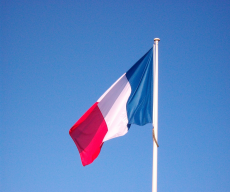
One of the most significant achievements of Napoleon’s was the way in which he managed to stabilise France, steering the nation out of the chaos created by years of revolution and repeated coups and regime changes. But how did he do it?
Before Napoleon’s takeover, the ruling body of France was known as the Directory, which had gained control of the country in 1795. Under the Directory the chaos in France continued because the political power was shared between five executive directors and two legislative councils, resulting in a lack of firm direction and leadership.
But when Napoleon’s coup d’état (known as the Brumaire coup) occurred in 1799 and successfully over-threw the Directory, he brought about major changes in the way France was ruled.
Instead of having several leaders with differing ideas Napoleon appointed himself First Consul (ruler of France) in December 1799. He then further increased the strength of the power he held by making himself first consul for life in 1802 and then Emperor in 1804. This made Napoleon a dictator; however, it also meant his government was more decisive and therefore could properly govern the people of France.
He also created two new legislative chambers under his command, the Senate and the Council of State. The Senate was made up of 60 members (many of which were Brumairian collaborators of Napoleon) vested with powers to preserve the Constitution, the name of Napoleon’s government, and were also given the right to amend it, meaning that they helped keep a working government and were able to shape it to suit the needs of the nation.
The Council of State was another preserve for the Brumairians. However this was in some ways a positive thing because they came from diverse political backgrounds and brought to the Council a vast range of professional skills and experience, meaning that in their role of advising Napoleon they were very reliable. It also meant that they were loyal and would not launch a coup themselves.
Another vital role Napoleon had given to the Councils was to be able to restrain his power when needed for instance by drafting legislation he wanted to be enacted. They also kept his many ministries in check so that none of the departments became corrupted or went out of control which might have brought about another coup putting France back into chaos.
Another important part of bringing France out of its own conflict and making it function again was of course to ensure law and order. Napoleon therefore set up a new Ministry of Police. The ministry was empowered by strict censorship laws and consisted of six sections which maintained a huge network of trained spies and informers. These policemen were Napoleon’s eyes and ears in the underworld of political dissidence and crime meaning that he was able to stay one step ahead of uprisings so he could crush them before they got out of hand.
To make sure that the police network itself didn’t become corrupt, Napoleon appointed a secret police to observe and spy on them. These elites were directly accountable to Napoleon and no one else to ensure that they remained uncorrupted.
In an emergency he could also call upon the military police and his own palace guard. As Geoffrey Ellis said in The Napoleonic Empire, ‘He seems to have taken a certain Machiavellian pleasure in playing off his police forces against each other through a policy of divide and rule…’ However this method obviously worked because the police generally did the jobs he asked of them and successfully maintained order throughout France.
It was thus the iron grip Napoleon established over France, along with his careful restructuring of the government and use of the police, which meant he was finally able to stabilise the nation after years of violence and chaos.
Image: By fdecomite (French Flag Uploaded by tm) [CC BY 2.0 (http://creativecommons.org/licenses/by/2.0)], via Wikimedia Commons

0 Comment:
Be the first one to comment on this article.